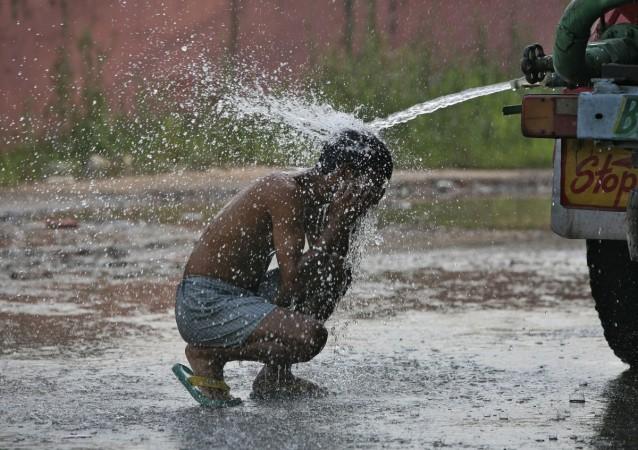
As the conflict over sharing of Cauvery river water continues between Tamil Nadu and Karnataka, analysis of data concerning water usage reveals that Karnataka's capital Bengaluru, which is almost entirely dependent on the river, wastes half the water it receives.
Bengaluru consumes 50 percent of Cauvery water reserved for domestic use in Karnataka, and nearly 49 percent of this supplied water is what is called "non-revenue water" or "unaccounted for water", i.e. water lost in distribution, according to the Bengaluru Water Supply and Sewerage Board (BWSSB) data.
"Inequitable supply to different parts of the city — ranging from one-third to three times the average per capita daily supply — makes this worse," Krishna Raj, an associate professor at the Institute for Social and Economic Change (ISEC), was quoted as saying to IndiaSpend.
Former board chairman, TM Vijaybhaskar, had also admitted to a loss of about 46 percent water at a conference in February 2016. "Of 1,400 MLD (million litres per day) of water pumped to the city, 600 MLD goes to waste," he said. Even though about 15 to 20 percent wastage in cities across the world is considered normal according to the institute's study, Bengaluru's wastage (recorded at 48 percent by the institute's study three years ago) is the second highest in the country. Kolkata leads with 50 percent.
According to estimates, the actual amount of water received per person is roughly 65 litres (equivalent to four flushes of a toilet). This is below the figure of 150 litres of water per person per day suggested as standard by the World Health Organization (WHO) and Central Public Health and Environmental Organisation (CPEEHO). On an average, water is supplied thrice a week, to Bangaloreans — 8.5 million people living in India's third most populous city.
The board data also makes some grim predictions for the future. Over the next nine years, the city's water demand is predicted to be three times more than the supply.
Wasted water can be classified into two types of distributional losses:
• Damages and leakages in water supply system
• Unauthorised water connections
"Water leakages largely take place at distribution mains, service pipes and stand posts and together account for 88.5 percent of water spillover, the rest being low leakages at main valve, meter joint stop valve, ferrule, air valve and others. This huge loss is directly attributed to the water seepage at various stages of supply," said the institute's paper.
Karnataka was allotted 270 thousand million cubic ft (TMC) water by the Cauvery Water Disputes Tribunal. About 80 percent of this is used for agriculture and industry (down from over 90 percent in 2007). The leftover 20 percent is used for rural and urban domestic use. Bengaluru, whose population density is 13 times higher than Karnataka's average, records the highest demand of that leftover quantum.
The city receives about 19 TMC of Cauvery water. But demand has been increasing steadily. The Karnataka state urban development department provisionally raised the supply by an additional 10 TMC to meet the needs of 110 villages added to the metropolitan area in 2007. However, another formal proposal to raise city's water supply to 30 TMC is awaiting approval from central government.
If unaddressed, the situation is only likely to worsen. In nine years, the city's demand (currently 1,575 MLD) is estimated to rise by 71 percent, while the supply (currently 1,350 MLD) will rise only by a third, thereby tripling the demand-supply gap, according to the institute's study.
By 2031, Bengaluru's water supply will reach its optimum level (2,070 MLD) and stay there while the city's water demands rise further in the decades thereafter, widening the shortfall progressively, showed the board's data.
"As per the Cauvery Water Disputes Tribunal award, Karnataka receives lesser water per sq km — 1 TMC of water is distributed over 134 sq km here, whereas in Tamil Nadu, it is supplied to 116 sq km," Raj said. "Add to this, there is inefficiency and inequity in Bengaluru's supply, which must be addressed."














